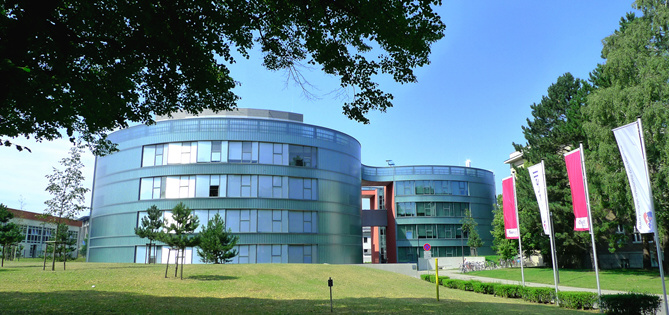Cancer Res. 2002; 62:3598-3602
Transactivation-deficient DN-p73 acts as an oncogene.
Stiewe T, Zimmermann S, Frilling A, Esche H, Pützer BM.
The recently discovered p53-family member p73 displays significant homology to p53, but data from primary tumors and knockout mice argue against p73 being a classical tumor suppressor. We report on the overexpression of NH(2)-terminally truncated, transactivation-deficient p73 proteins (DeltaTA-p73) in human cancer cells. Moreover, we show that DeltaTA-p73 overexpression results in malignant transformation of NIH3T3 fibroblasts and tumor growth in nude mice, thereby providing the experimental evidence for an oncogenic function of DeltaTA-p73. Apparently, increased expression of NH(2)-terminally truncated p73 isoforms conveys the TP73 gene with oncogenic activity that appears to be actively selected for during tumor development.

Kontakt
Institut für Experimentelle Gentherapie und Tumorforschung
Core-Facility Virale Vektor & Genom-Editing Technologien
Biomedizinisches Forschungszentrum
Schillingallee 69
D-18057 Rostock
Sekretariat
Ingrid Winkler
(+49) 381 494-5066(+49) 381 494-5062
ingrid.winkler@med.uni-rostock.de
Department Leben, Licht & Materie
Forschungsbau LL&M
Albert-Einstein-Str. 25
D-18059 Rostock
Forschungsbau LL&M
Albert-Einstein-Str. 25
D-18059 Rostock




